Part II: The Unknown Norwegians Racing in Nice
The IRONMAN World Championship in Nice has five Norwegians on the start list. Two of them are named Kristian, but you probably only know one of them. In part two of our series on the Norwegian crew racing in France next month, meet the other Kristian and learn about his take on the Norwegian Method.
The Other Kristian
Fresh off his win at the Norseman Xtreme Triathlon, Kristian Grue is a second-time Nice qualifier. The 30-year-old raced the first IRONMAN World Championship Nice in 2023, but had to pull out on the run with a back injury. He missed out on Kona last year but, after having his career-best performance and first full-distance podium at IRONMAN Austria, Grue qualified and will return to the world championship.
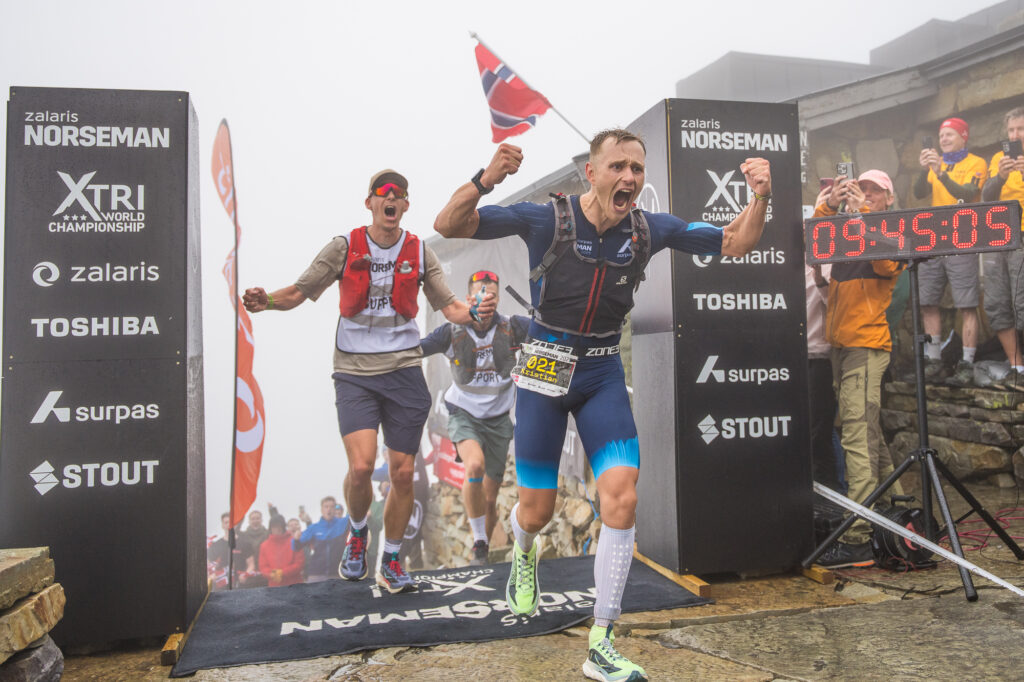
Photo: Kevin Mackinnon
“ I think the level will be even higher than it was in 2023,” he says. “I’ve said that my goal is to get into the top 15. I think, on a really good day, that could be possible. On paper, I’m not even good enough to qualify.”
“But I know that when I pace myself right, I have one of the stronger runs after a bike,” he continues. “I also think that it’s a course where you can finish in the top 15 even if you’re as far down as top 30 after the bike. I think a lot of guys push really hard the first two hours up the hills – if you go too hard for two hours on the full distance, although you can feel fine out on the run, you’ll still struggle to run fast for the whole marathon.”
Biathlete to Triathlete
The former biathlete did his first triathlon in 2018 and his first long distance event in 2019 – his first attempt at Norseman, where he finished seventh. After age group success, he took his pro license in 2020 and returned to Norseman in 2021 and 2022, finishing second both times to none other than Jon Breivold. In 2023, he made his world championship debut, qualifying by out-sprinting Sweden’s Robert Kallin in the final 200 m at Ironman Hamburg.
“That was insane,” he remembers. “I caught up just before the last left corner onto the red carpet. It was a hard sprint after almost eight hours.”
It was after Hamburg that he started to struggle with back pain that kept him from running, sitting in the TT bars, and eventually caused him to DNF in Nice. This year, Grue is looking to change his history in Nice.
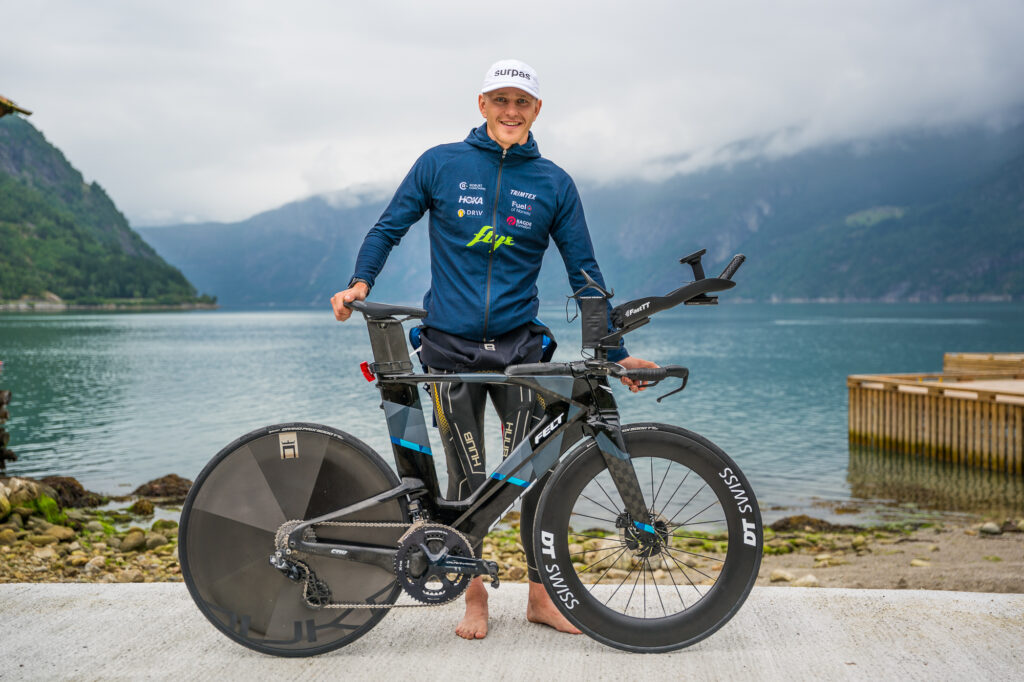
Photo: Kevin Mackinnon
Full Time Work, Part Time Sleep
While most of Grue’s competitors are preparing at altitude, optimizing their recovery, and dialing in the smallest details, Grue is fitting in as much training as he can before and after work. As a full time human resources manager and chief administrative officer for a construction company in Oslo, his schedule isn’t what you think it would be for a professional long distance triathlete.
“ Normally, I’m at office at least from 8 am to 2 pm, and then I’m working maybe 30 to 45 minutes before I go to swimming in the morning,” he says. “I work an hour in the evening or a few hours on the weekend.”
His work is supportive of Grue’s ambitions but, he admits, while they follow his races, he doesn’t think they know exactly what it takes day in and day out. But, for him, having a job is essential.
“I don’t think I’m the type of guy to do triathlon 100% full-time because I need something else to focus on,” he says. “When I was studying, I had some parts of the year where I didn’t do much studying. I was just training and just doing the sessions and sitting on the couch and sleeping and resting for the whole day. But I don’t think that’s healthy for me.”
“You focus only on the next session and if the session goes bad you’re like, okay, well, these sessions can’t go bad because this is all I do and need to do well,” he continues. “But I think now I know that, okay, well if this race goes to shit, I still have work and money to fall back on and that’s a bit of a relief.”
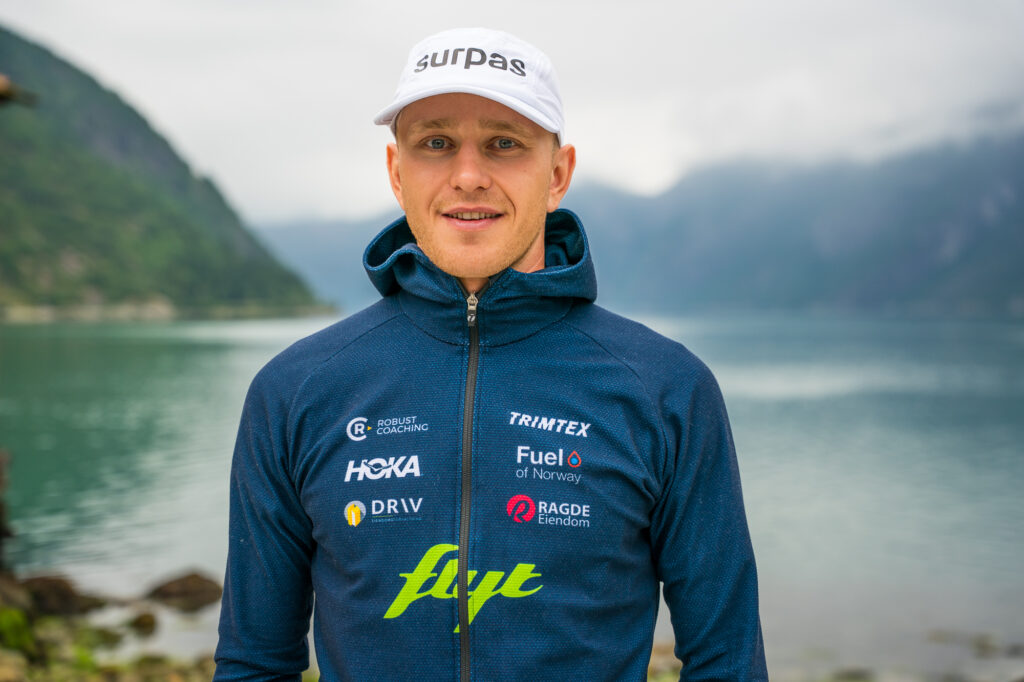
Photo: Kevin Mackinnon
Working full time does mean something has to give. For Grue, it’s usually sleep. Swimming at 5:30 am, heading to work, training after, and then working some more is a gruelling schedule for anyone–but he just gets it done.
“ I just focus on the positive things and not the things that are taking energy or the things you can’t control,” he says simply.
“Years ago, if I wasn’t sleeping at 9 or 10 pm, I was really stressed because I knew I had to get up at 7 and I wasn’t going to get the hours of sleep I needed,” he says. “I was stressing and sleeping worse because of that. Now it’s more like, I need to do this job … If I don’t fall asleep, I try to focus on (the fact) that at least I’m laying in the bed and resting.”
Still, he says in the future he wants to work half time, so he can have more time to train, but until then he relies on his mindset.
“[It’s] focusing on the things you can do something about and trying to stay in a positive balanced state of mind,” he says. “Last year I had a bigger focus on a positive mindset, and that’s something I’m sure is helping me in this sport.”
The Norwegian Method
Grue is proud to be one of the five Norwegians racing in Nice.
“If you go 10 years back, triathlon in Norway was only an age group sport,” he says. “No one had even heard of it, and now the sport is growing so much. But, of course, it’s hard because even though I’ve had a good season this year, it’s still way far off what Kristian, Casper, and Gustav are doing. I think sponsors and everyone else will see like, okay, you’re doing well, but you are still far off these southern Norwegians.”
Well, so is pretty much everyone else on the planet. But Grue subscribes to parts of the “Norwegian Method.”
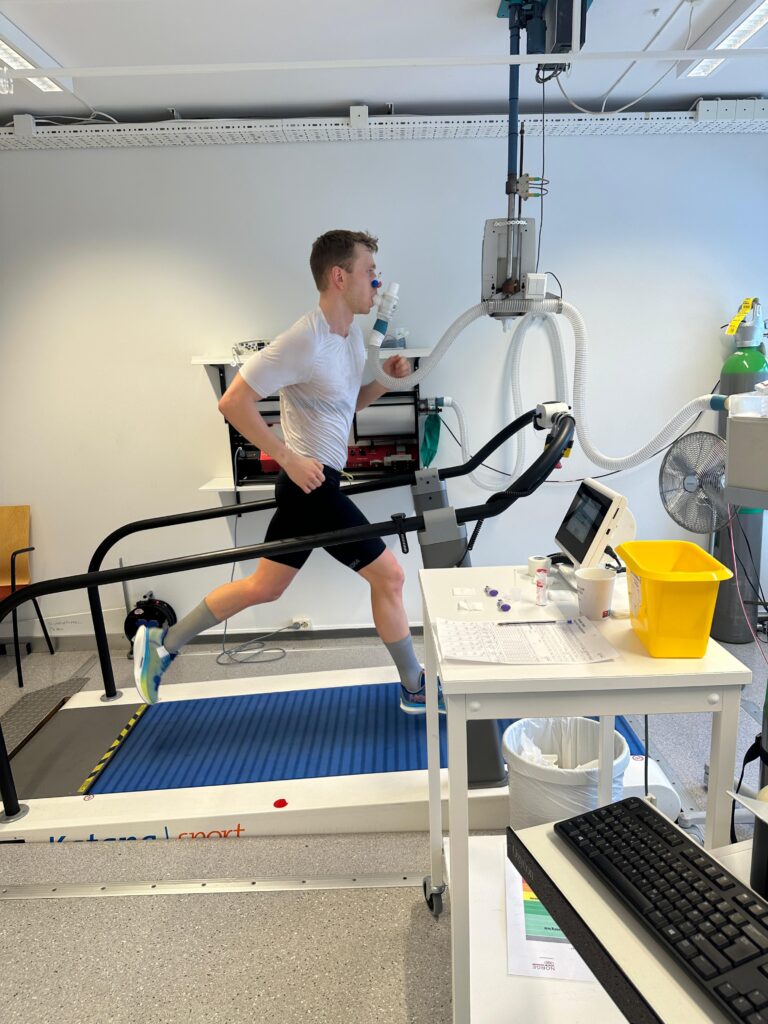
“ I do have a coach but he’s not making the training plans,” he explains. “ I schedule my training myself to make it work with work, and it’s more week from week but, of course, a lot of the Norwegian method. A lot of threshold sessions, and we also do a lot of lab testing to see what I need to focus on.”
“For example, this winter was the first winter I didn’t do any VO2 max sessions,” he continues. “We saw that falling into the winter, my VO2 max was high enough for the full distance racing, and that wasn’t the limit. But we saw that my LT1 needed to be higher because I was burning a lot of carbohydrates at quite low power. So, we did a lot of threshold work and a lot of zone two training.”
Confidence to Be Better
It’s been two years and a full-time job since Grue last faced Nice, but he is coming at his strongest self and not just physically.
“[I’ve learned to be] patient and have confidence in my abilities,” he says. He talks about how each race experience has given him “more tools in the toolbox,” even going back to his years as a biathlete.
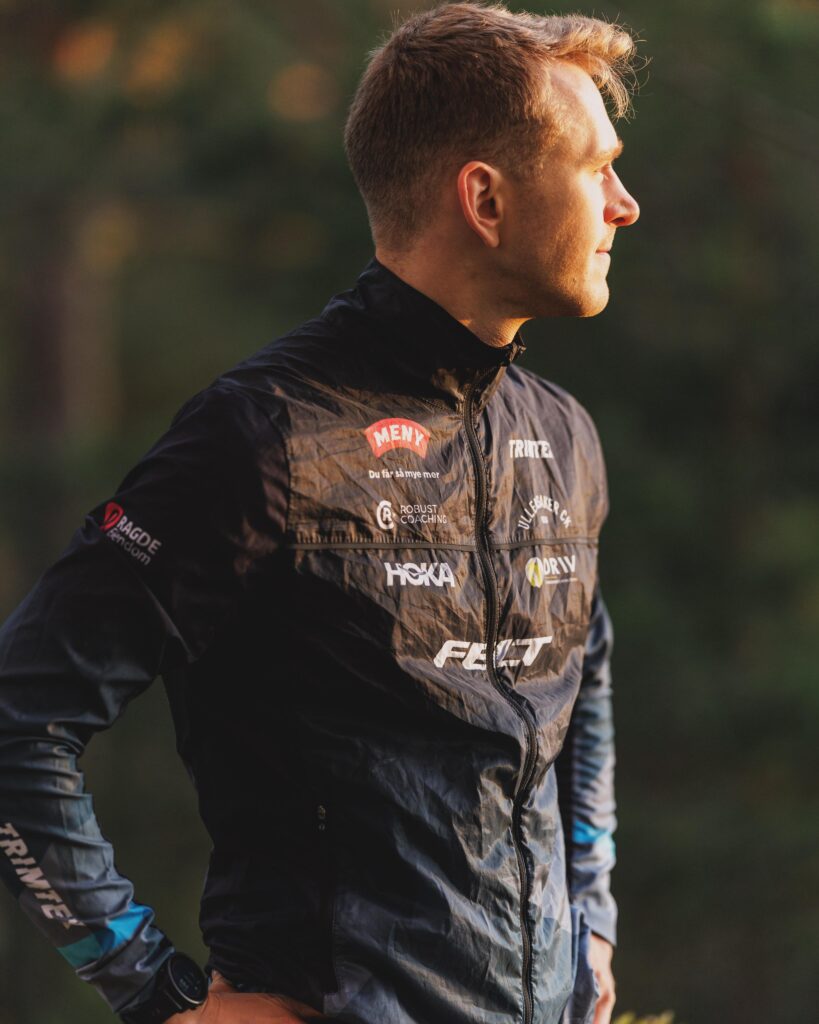
“In biathlon, I had a few good races, but I was never doing super well,” he says. “I didn’t have any huge results. But I’ve seen that, in triathlon, I’m at the level where I can be competitive at the highest international level, so I’m starting to be confident in myself and what I’m capable of.”
“I also know that if I can do this in triathlon and also have full-time work, I know there is even more I can do in triathlon,” he continues. “I can optimize the sleep more; if I can work less, I can train even better and maybe more; I can travel more and train with other people; I can have more time to do testing and wind tunnel; I haven’t done altitude training. So, there are so many small pieces that make it possible to be a lot better.”

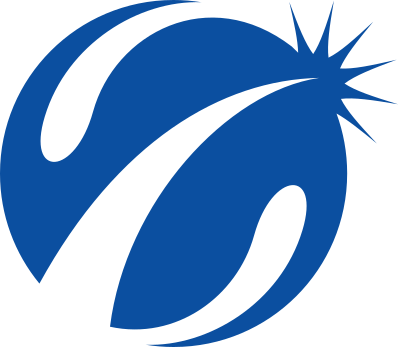





Start the discussion at forum.slowtwitch.com